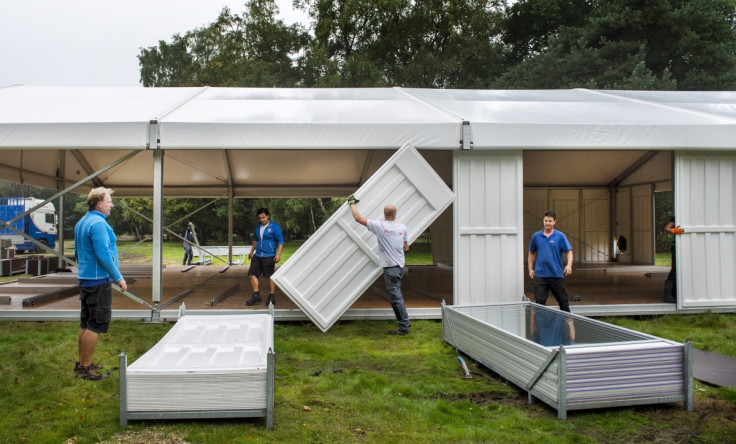Refugee crisis: 3,000 migrants to be housed in a Dutch forest

With 3,000 asylum seekers set to descend on one of Holland's oldest cities between Wednesday (23 September) and Friday (25 September), authorities are desperately transforming a forest into a makeshift housing to accommodate them. The site, located in the 2,000-year-old city of Nijmegen on the country's eastern border with Germany, was twice used in the 1990s to welcome refugees fleeing violence after the breakup of Yugoslavia.
Since last week, soldiers and contractors have been working frantically to raise marquees to house the people. The scale of the site is estimated to be roughly equivalent to 10 football pitches and infrastructure like water and power is already there. Dutch authorities have said the accommodation will be "simple and humane" and have beds, showers, portable toilets, electricity and internet access.

During the summer, the city and its wooded surroundings play host to Europe's largest walk over a period of four days and for that reason, the solution is temporary as the 100<sup>th International Four Days Marches is scheduled to take place next July.
"We must give these people shelter, we can't leave them in the street, especially now with winter coming," Dutchman Gerard Brans told AFP after he had observed the construction activities.
Unlike Germany, the Netherlands has not been inundated with refugees and experienced a lull in asylum seekers between 2002 and 2013, where no more than 20,000 people applied annually, compared to more than 40,000 per year in the 1990s. According to Eurostat figures, asylum applications to the Netherlands have soared by 159% in the second half of 2015. The majority of applicants are from Eritrea, followed by Syria and then by those classed as "stateless".
The move by Dutch authorities shows innovative solutions in a bid to solve the growing migrant crisis, which is in stark contrast to their Saudi counterparts who came under intense criticism earlier this month after it emerged that the oil-rich gulf state has 100,000 empty, air-conditioned tents that could be used to house refugees. The marquees, in the town of Mina, are only used for a few days a year for hajj pilgrims, but otherwise sit empty.
In light of the criticism, a Saudi spokesperson said that the Kingdom was keen not to put refugees in camps "to preserve their dignity and safety" and to give them "complete freedom of movement".
© Copyright IBTimes 2025. All rights reserved.




















